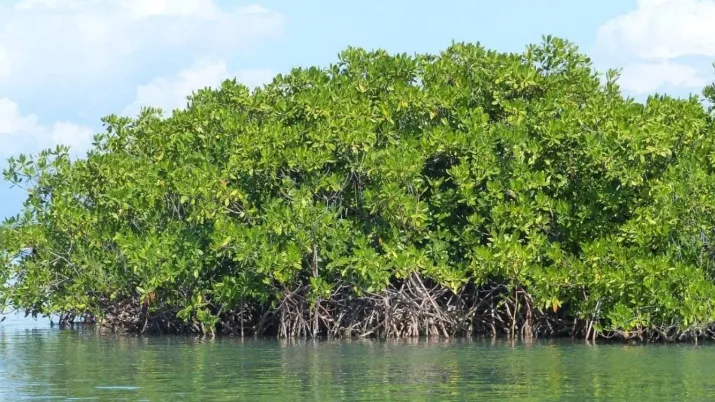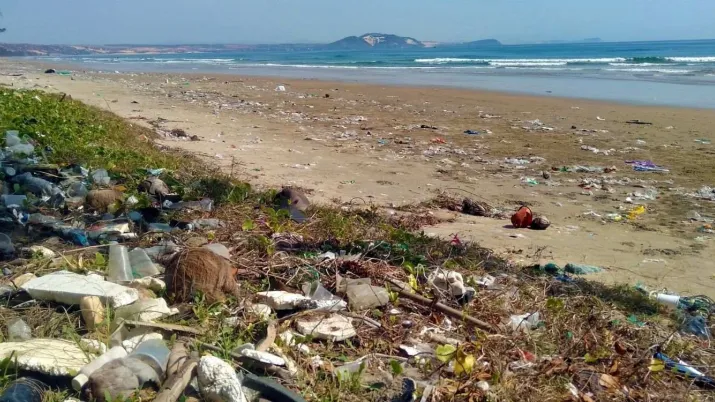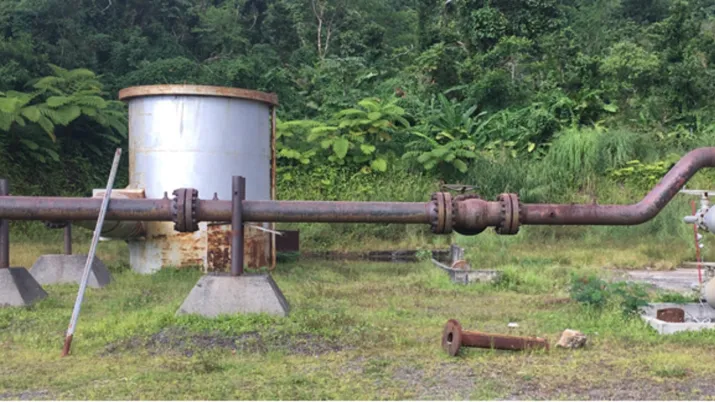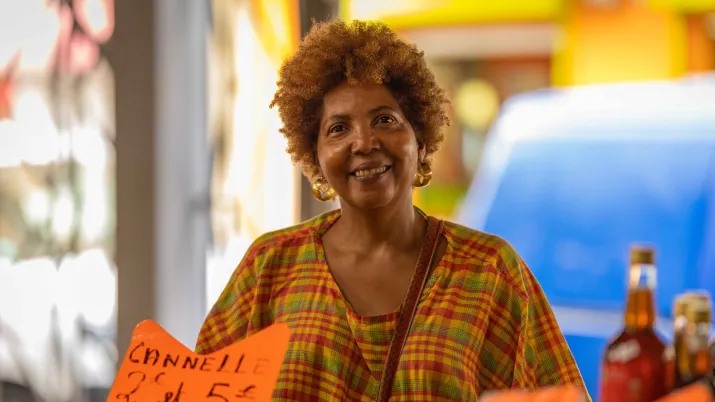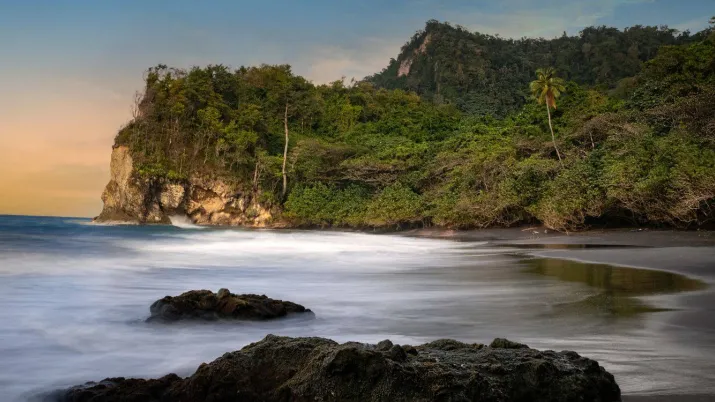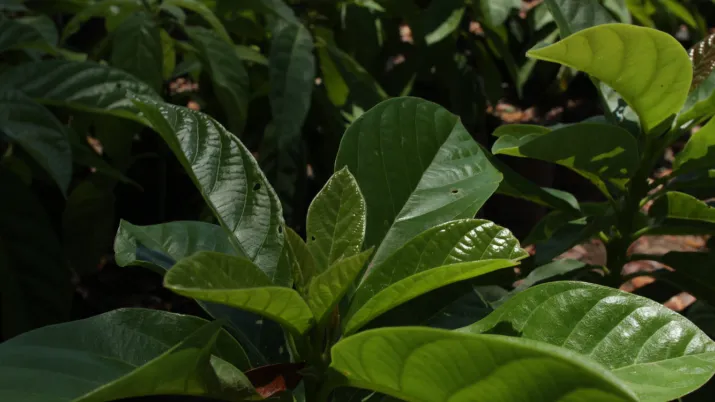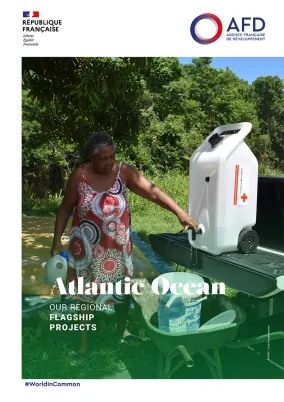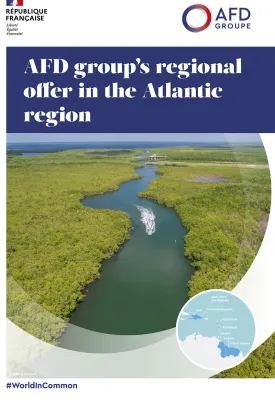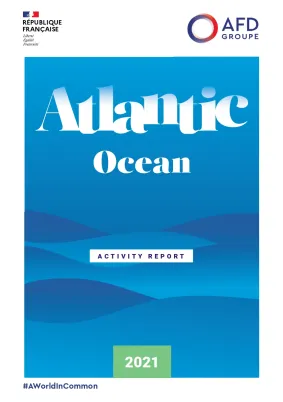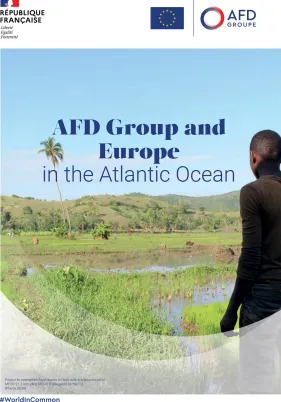Share the page
Martinique
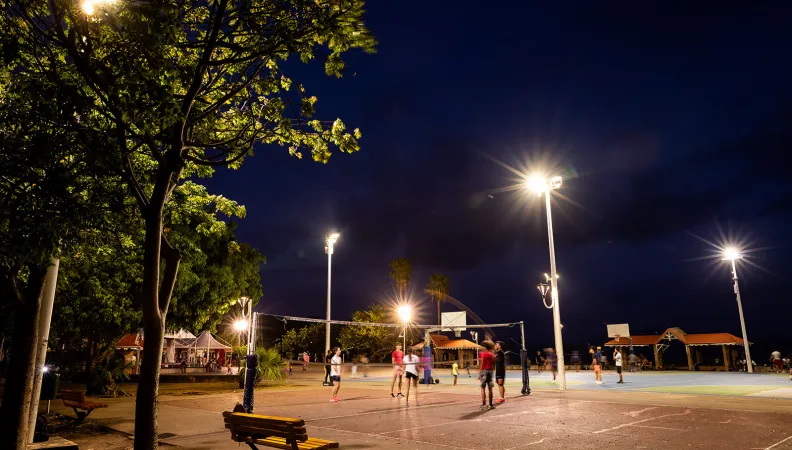
Located in the middle of the Antilles archipelago, Martinique is rich in exceptional national heritage and boasts a strong economy. However, it needs to reduce ongoing social and regional inequalities and find new sources of growth. As a longstanding partner, AFD supports the island's transition towards a more inclusive and sustainable development model.
Context
Situated in the center of the Caribbean archipelago, Martinique is a French Overseas Territory covering 1,128 km². It is also the third most densely populated region in France, with 318 inhabitants per km². Martinique's population is estimated at 348,000, a figure that has been steadily declining (388,000 in 2012). This demographic decline is largely due to the outmigration of young people, particularly recent graduates, to mainland France. This trend has contributed to an aging population. In 2023, Martinique became the oldest region in France.
In 2014, Martinique established a single local authority, the Collectivité Territoriale de Martinique (CTM). It is also composed of three intercommunal cooperation bodies (Établissements publics de coopération intercommunale, or EPCI), which bring together the island’s 34 municipalities.
Martinique boasts exceptional natural and cultural heritage and benefits from a relatively dynamic economy. However, it still needs to identify new drivers of growth and reduce persistent social and regional inequalities.
The territory has a high unemployment rate (11.8%, compared to 7.3% nationally) and a poverty rate (26.7%) nearly twice the national average. Martinique also continues to experience a decline and aging of its population, making it all the more urgent to improve the accessibility and quality of public services. This is particularly true in the areas of transportation, water and sanitation, waste management and recovery, high-quality social housing, and care for vulnerable populations. Older adults are a particular concern, as they are projected to make up 40% of the population by 2030.
Despite this, Martinique has many strengths. Its Human Development Index is high, at 0.85. It has exceptional biodiversity, including UNESCO’s designation of Mount Pelée and the Northern Pitons as a world biosphere reserve. Martinique also has strong potential for further diversifying its energy mix.
Our approach
"AFD and Martinique: reducing inequality and creating a sustainable growth model"
A long-standing and trusted partner, AFD has been active in Martinique since its creation in 1941. Over the past ten years, AFD has committed more than €1 billion in loans across the territory, benefiting the vast majority of public and affiliated entities on the island.
AFD’s operations in Martinique are structured around the major challenges facing the territory, including climate change and pressure on terrestrial, coastal, and marine ecosystems; an aging population; and social inequality.
AFD provides financing and support to public, nonprofit, and private stakeholders. Its instruments include concessional loans for public and nonprofit actors, bridge loans to pre-finance national or European grants, and market-rate loans to the private sector through syndicated bank arrangements.
AFD is also expanding its advisory and capacity-building activities through the implementation of the Fonds Outre-Mer ("Overseas France Fund"), created in 2020 by the Ministry for French Overseas Territories. It supports the COROM program, which aims to restore the financial health of certain municipalities in French overseas territories, by providing technical assistance. AFD also assists municipalities under the Antilles Earthquake Plan adopted by the French government in 2007, by financing pre-feasibility and feasibility studies for the construction or seismic reinforcement of school facilities.
AFD’s strategy in Martinique is built around three main pillars, each contributing to the achievement of the 17 Sustainable Development Goals.
Our work specifically targets the following objectives:
- Strengthening the resilience of territories and reducing the impact of natural disasters on Martinique and its population (SDG 11 – Sustainable Cities and Communities)
- Contributing to the development of a lower-carbon energy mix and promoting energy efficiency (SDG 7 – Affordable and Clean Energy)
- Enhancing and sustainably managing natural resources while preserving ecosystems and biodiversity (SDG 14 – Life Below Water; SDG 15 – Life on Land; SDG 6 – Clean Water and Sanitation)
AFD finances projects and provides support in the following areas: urban renewal and the prevention of land artificialization; expansion of public transportation services; development of renewable energy sources such as wind and solar; improvement of energy efficiency in buildings and public lighting for local authorities; enhanced waste management and recovery systems; improvement of sanitation and access to drinking water; and preservation of coastal and marine ecosystems and biodiversity.
Our work specifically targets the following objectives:
- Promoting youth inclusion (SDG 8 – Decent Work and Economic Growth)
- Improving healthcare and support services for the most vulnerable populations (SDG 3 – Good Health and Well-being)
- Supporting the improvement of public services by reducing socioeconomic and gender inequalities (SDG 6 – Clean Water and Sanitation; SDG 11 – Sustainable Cities and Communities)
AFD finances projects and provides support in areas such as youth inclusion, particularly through the development of sports and cultural facilities; and the improvement of healthcare and support services for vulnerable populations, including funding for social and medical associations, hospitals, and long-term care homes.
Our work specifically targets the following objectives:
- Supporting the development of blue, green, and circular economy sectors (SDG 12 – Responsible Consumption and Production)
- Strengthening land, air, sea, and digital connectivity (SDG 9 – Industry, Innovation and Infrastructure; SDG 11 – Sustainable Cities and Communities)
AFD finances projects and provides support in the following areas: digital development across the territory; expansion of land and maritime public transport and shipping services; development of blue, green, and circular economy sectors; support for the social and solidarity economy; and promotion of sustainable tourism.
Contributing to France’s climate commitments and the preservation of biodiversity (SDG 13 – Climate Action; SDG 14 – Life Below Water; SDG 15 – Life on Land)
In 2024, 62 percent of AFD’s financing in Martinique contributed to climate change adaptation and mitigation. The agency prioritizes the integration of climate issues into public investment programs by facilitating access to concessional loans and supporting the deployment of the Fonds Outre-Mer.
Strengthening regional cooperation (SDG 17 – Partnerships for the Goals)
AFD uses a range of tools to help public, nonprofit, and private stakeholders implement regional cooperation projects. These initiatives aim to improve the integration of local actors and promote Martinique’s expertise across the Caribbean.
Contributing to the reduction of gender inequalities (SDG 10 – Reduced Inequalities; SDG 5 – Gender Equality)
The agency ensures that gender considerations are incorporated into the projects it supports. Action plans or training programs may be implemented with partners to help develop public policies and strategies that promote gender equality.
In the field
Below, find the country's projects, news, publications, and contact details in one click.
Projects
News & Press Releases
Microfinance: a Boon for Entrepreneurs Excluded from Conventional Banking
Published on November 18, 2022
Publications & Media
Key figures
-
75% of municipalities in Martinique receive support from AFD
-
€1.05 billion in loans granted over 10 years to public sector stakeholders (2016–2025)

